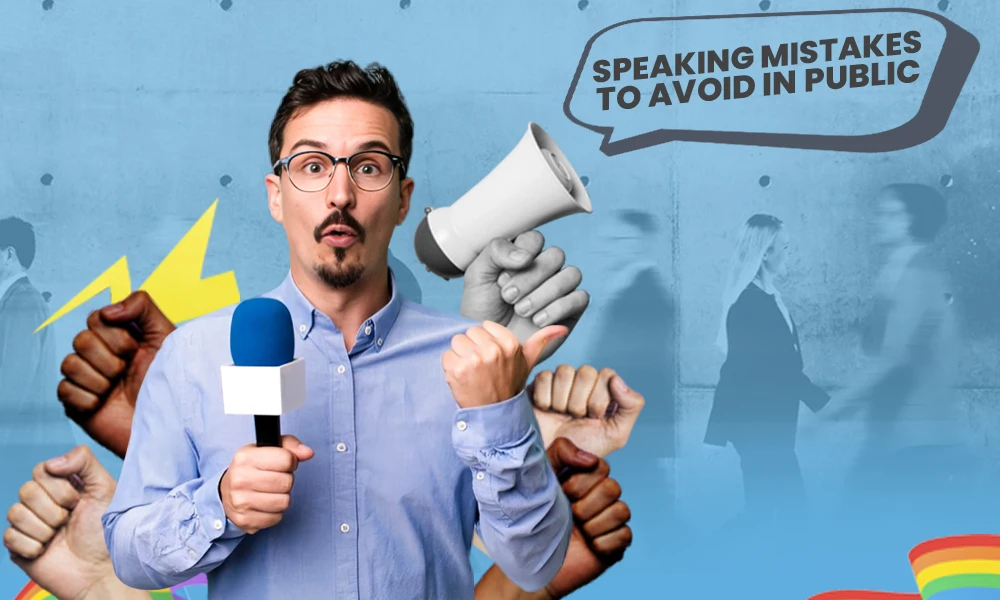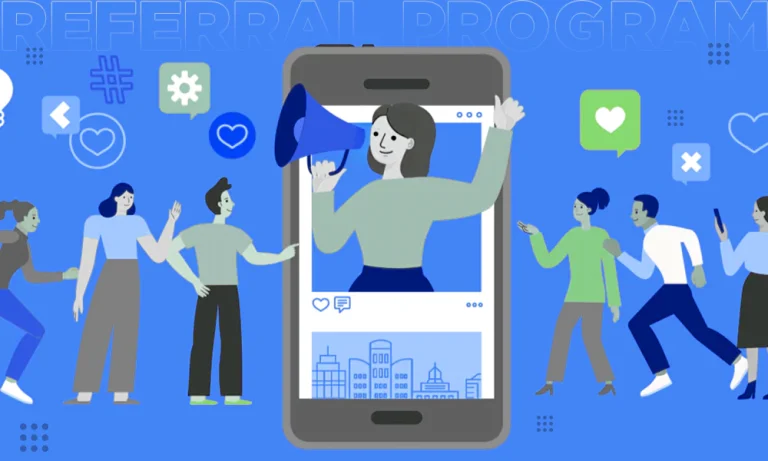10 Keynote Speaking Mistakes to Avoid
Public speaking is often seen as a troublesome task. However, it is one of the rewarding skills that helps you in both your professional and personal life.
So, if you are looking to become a proficient keynote speaker; or public speaker, you need to take your communication game to a new level. One thing you must remember is that it takes a lot of effort and time to win the hearts of a large audience.
Hence, we have assorted a list of common public speaking mistakes that you must avoid at any cost. Go through this article and learn the ways to fix those mistakes and become a keynote speaker!
Neglecting Audience Understanding
If you want to leave a lasting impact on the audience, you must have a clear understanding of what the general audience expects from an event speaker.
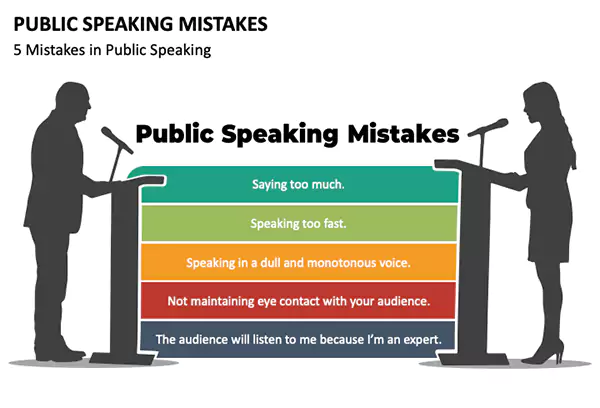
Many people forget to do that and underestimate the power of the audience. Hence, you must take your time to get familiar with the audience and find their interests. Get a detailed insight into the listener’s interests and challenges to spark their interest in your speech.
Failing to Define the Key Message
No one has enough time to listen to a speaker who is blabbering random things without a motive.
So, try to conclude your key message in just two sentences when you are preparing for an event. This will show your professionalism and the audience will easily understand the motive of your speech.
Remember, the central message should be comprehensible so that the attendees can easily grasp it.
Note:
The average audience attention span is only 8 to 10 minutes. Therefore, you need to try something new every 8 or 10 minutes to bring their attention back.
Overloading with Information
Sometimes, to sound credible, you end up adding too much information; and data dumping. This makes things more complicated than they need to be. Your message shouldn’t be filled with long speeches or useless facts that result in stressing out the audience.
So, what you need to do is try not to overwhelm the attendees with long statistics, facts, or incidents. Keep your message short and understandable! Also, try to provide a context that backs up your message and goal.
Ignoring Storytelling
A message that is too short and only filled with facts sounds too dull. It will surely help to convey your information, but the audience will easily forget it.
As humans, we absorb a large amount of information in a day, but we are only able to memorize a few of them. It’s because our brain only retains the information that we found useful at the time of consuming it.
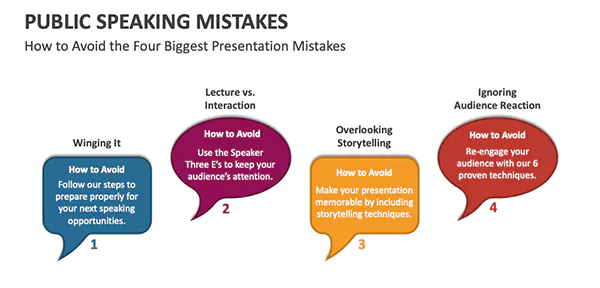
Thus, you need to make sure to add some interesting anecdotes or stories that keep the people intrigued and connected to the topic. It will help you to grasp the listener’s attention.
Lack of Engagement
Many people tend to forget the fact that engagement is necessary to keep the audience engaged with the topic.
If you wish to include your audience, you must engage with them. Here are some tips that you can follow to boost engagement:
- Try to make eye contact, even if it’s for a few seconds.
- Ask questions to pique the audience’s interest in the speech.
- Use humor to lighten the mood.
- Remember to pause before or after the climax of the speech.
- Maintain a smile on your face that doesn’t seem awkward.
- Make sure you improve your English pronunciation.
Neglecting Rehearsal
You can’t make a good impression on the attendees if you plan to wing the presentation somehow. It will show your lack of professionalism and experience.
So, what you must do is take some time out to rehearse the speech. Continuous practice will help you to appear confident in front of people.
Try to practice speaking in front of the mirror to understand the aspects you are lacking in. You can also record yourself and listen to the way you sound.
Poor Time Management
Suppose, you are given 50 minutes to cover the presentation, then make sure your speech ends up in 45 minutes. However, if your speech prolongs the allocated time and ends up in 2 hours, you will end up upsetting the whole audience.
If you have a fixed allocated time, then you need to make sure you don’t exceed that limit and overshoot your time. It is known to be rude to the organizer, be it your boss or the event manager.
So, try to use your time wisely! Practice and record yourself while rehearsing to time the presentation.
Ignoring Visuals
Many people ignore the importance of Visual aids and end up turning their presentation into a disaster. They forget that visually striking content has the power to make your presentation look presentable.
Use the right amount of images that show the comparisons and analysis, instead of just randomly adding in the images for formality. Make the right use of images and adopt effective practices to create eye-catching presentations that complement your work.
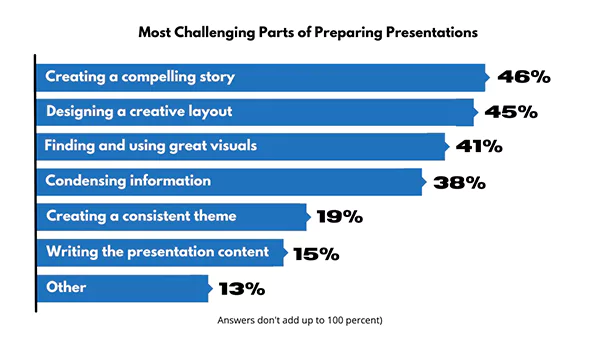
However, remember to not misuse these aids, or else you will end up appearing as an amateur.
Neglecting Audience Feedback
If you wish to become a keynote speaker, then you must never neglect the audience’s feedback. Whether the feedback is positive or negative, take that Constructive criticism as an opportunity for improvement.
After every speech you present, ask your audience for feedback. It will help you to work on the areas that you lack, leading to progress.
Lack of Authenticity
Every person has their speaking style, and the audience knows that. So, if you try to imitate someone while speaking, you will lose your authenticity and come off as an insincere person.
To prevent that, try to speak from the bottom of your heart; even if that makes you look clumsy and lacking. People will appreciate your sincerity and give you true feedback.
In Conclusion
Being a keynote speaker or a public speaker is a wonderful job that demands careful execution and continuous efforts. Learning these skills will lead you to become a legendary speaker.
So, remember that your pose and confidence are all that matters! Try not to lose your calm and keep a pleasing expression on your face.
Take note of these common mistakes and make sure you steer clear of these mistakes while standing on the podium in front of the audience.

